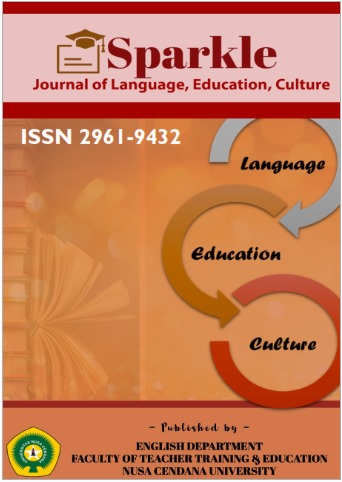AN ANALYSIS OF PROVERBS IN INDONESIAN LANGUAGE AS FRAMES OF REFERENCE IN CROSS-CULTURAL COMMUNICATION
Abstract
This study describes the proverbs in Indonesian language that function as the frames of reference in cross-cultural communication with special reference to the forms and meanings of linguistic phenomena in the proverbs in question. The study is viewed from the perspective of cultural linguistics, one the new theoretical perspectives in cognitive linguistics exploring the relationship of language, culture, and conceptualization. The study is descriptive-qualitative on the basis of secondary data collected through library research considered along with the experiences the writers when visited and lived abroad. The results of study show that the proverbs in Indonesian language as the frames of reference in cross-cultural communication are as follows: (01) Lain ladang lain belalang, lain lubuk lain ikannya ‘Different fields different grasshoppers, different depths different their fish’ and (02) Di mana bumi dipijak, di situ langit dijunjung ‘Where the earth is stepped, there the sky is upheld’. The forms and meanings of linguistic phenomena used in the proverbs are specific in some respect to Indonesian language as the reflection of Indonesian culture designating the ways Indonesian people view and make sense of their world, especially in regard to cross-cultural communication. The meanings implied in the forms of linguistic phenomena used in the proverb (01) are concerned with the natures of cultural differences as the basic concept of cross-cultural communication, while the meanings implied in the forms of linguistic phenomena used in the proverb (02) are concerned with the manifestation of that basic concept in action in the sense that it is best to follow the cultural realities such as customs, rules, norms, values, habits, and traditions of a place being visited or lived in an attempt to prevent potential conflicts arising due to misunderstanding of cultural differences.

 Florens Maxi Un Bria(1)
Florens Maxi Un Bria(1)

